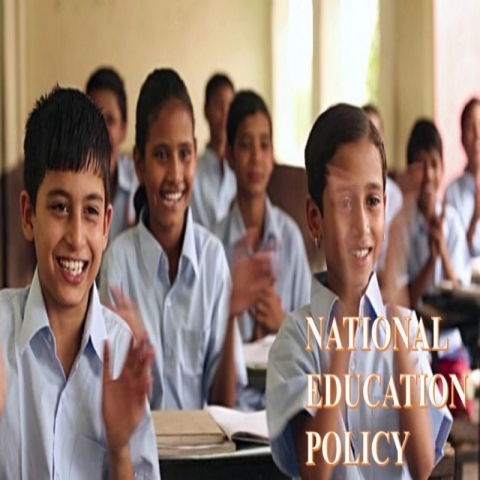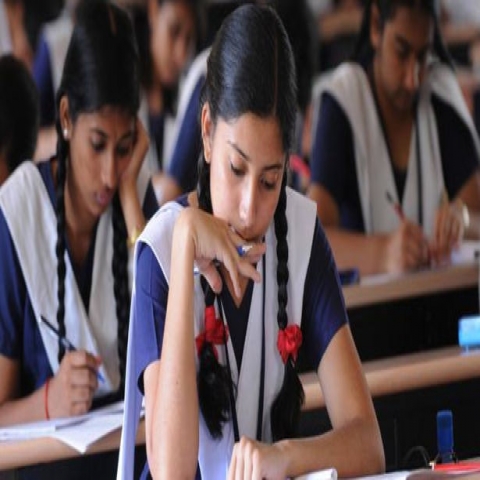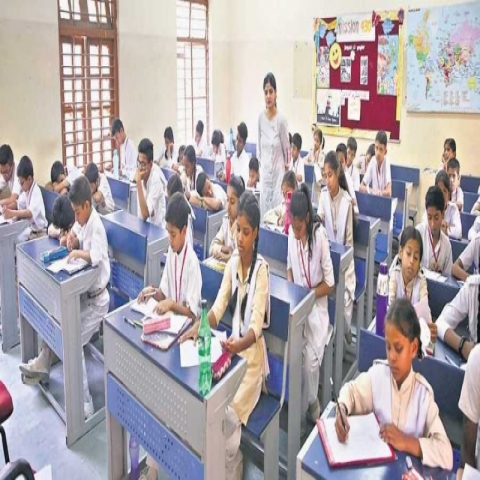


New national education policy – 2020 is launched by Government of India after much consultation, discussions, conducting seminars, holding workshops with all stake holders and general public for almost 5 years. Now it is available in the public domain. We should understand that a policy document is a statement of intent of the government and provides guidelines. It is to be implemented as a procedure and protocol by following all the regulations and directions pointed out in the policy document.
There are structural changes to revolutionize the Indian education system along with path breaking and transformatory initiatives which were hither to not found in the earlier NEPs. It appears to be providing direction for holistic, integrated, comprehensive and all-inclusive high quality education without neglecting 21st century skills, value system and man making life skills activity. It is acclaimed as that this NEP-20 is for the 21st century and to bring much needed reform that Indian education system has been waiting for the last 34 years.
Transforming curricular and pedagogical structure of school education i.e. 5 + 3 + 3 + 4 which includes 3 years in Anganwadi / Balvatika / pre-school and 12 years in school in 4 stages viz. foundation stage (5 years), preparatory stage (3 years), middle stage (3 years) and secondary stage (4 years). Here new concept is “Early Childhood Care and Education (ECCE)” is being streamlined assuring continued health care, self-help skills bringing all Anganwadis, Balvatikas and other pre- primary classes under main stream education. There are other specialties like attaining Sustainable Development Goals (SDGs) of retaining all children in schools until completion of secondary education with a thrust on vocational education. Improving the quality and achievement of learning outcomes i.e. Foundational Literacy and Numeracy (FLN), focus on 21st century skills in teaching, learning and assessment, resource sharing through school complexes, overcoming the language barrier in learning, fixing common standards for public and private school education and improving teacher education along with empowerment and provision for continuous professional development are some of the new features in the NEP-20 policy document. Every policy and plan have got to succeed when its implementation is taken care with utmost precaution and strategy involving all the stakeholders.
I. Policy document is to be understood by all stake holders:
Effective implementation is possible when all the stake holders comprehend minute details and specialties of the policy document. For this top down approach is to be followed. The academia, intelligentsia, education-leaders, media and policy implementers are to be well informed about all important aspects of NEP-20 and how it is different from earlier policies. It is more futuristic and prepares our people to face global competition and achieve all 17 sustainable development goals (SDGs).
II. Success depends on teacher on the ground level and in the schools:
Teachers performance is the most crucial input in the field of education. Whatever policies may be laid down, in the ultimate analysis they have to be interpreted and implemented by teacher. We should never forget that about 20 lakhs anganwadis, 20 lakhs balvatika / pre- primary teachers, 80 lakhs primary teachers, 20 lakhs secondary teachers and about 30 lakhs higher education teachers put together 1.5 crores of teachers is a big implementation force. These teachers should understand the policy in detail and their special role. Educating, empowering, upgrading, up-skilling and updating them is a big challenge even to the Government. Simultaneously here bottom-up approach is to be followed.
III. Primary classes and content generation:
As the thrust is on multi linguism and power of language, high quality text books are to be prepared in local language, for which a lot of effort is to be put in advance at primary stage classes. For example, there are many languages which are only spoken without script. There needs a special effort to design text books to meet local or regional requirements.
IV. Sisuvatika (ECCE) content:
Early Childhood Care and Education (ECCE) is completely new concept for the society. But Sisuvatika of Vidya Bharathi is a unique successful experiment towards sarvangina and samagra vikas of a child. Government is to be provided with all these inputs including central and state level ministries not ignoring other related education organizations and bodies viz. NCERT, SCERTs, Department of school education. Before somebody occupies this new seat let us have our presence felt at that level which is very much essential. Detailed sisuvatika plan with all the activities is to be made available and our teachers should also get trained and ready to hold workshops if necessary.
V. Knowledge is continuous, integrated and comprehensive – Content generation:
There will be no hard separation among curricular, co-curricular or extra- curricular activities and arts, humanities, science subjects, between academic or non-academic streams. Our graded activities shall be providing guidelines at school level. We should have to get ready with quality content at all levels, before the space is occupied by anti-national forces which were hither to controlling the whole educational organizations setup and system. Now that content generation with a time bound approach is a challenge for which academic and intelligentsia has to come forward with their ideas and experiences.
VI. Experiential and integrated learning:
At school level, experiential learning shall be adopted, which includes hands-on learning, arts & sports integrated learning along with standard pedagogy. Class room transaction will shift towards competency-based education. CBSE has released two guideline books on experiential learning and arts integration with all subjects. Basing on these we should have to work out in details during this year and get ready for submission of content whenever it is required.
VII. Vocationalisation of secondary education – Skilling while Schooling:
This is quite reformatory and essential measure to meet all future challenges and requirements. From standard VI to XII – vocations and skills to be added are to be listed after studying the local and field level requirements and needs are to be considered. We shall have to send a detailed plan with syllabus and activities. Village artisans, local experts, village professionals, National Skill Development Corporation (NSDC) and skill development agencies can play a vital role in this regard.
VIII. Adding local content in the syllabus:
20 to 30 percent of local syllabus can be finding a place when actual text books are prepared. We should have to gear up our mechanism to select local essential syllabus content and provide inputs whenever and wherever it is essential. This will help SCERT in preparing textbooks in time and hasten the process of implementation.
IX. Curricular integration of regular subjects with life skills, value system and man making mechanism:
Along with prescribed competencies and decided learning outcomes, we should have to inculcate scientific temper, evidence based thinking, creativity and innovation, sense of aesthetics and art, oral and written communication, health and nutrition, physical fitness, wellness and sports, collaboration and team work, problem solving and logical thinking, digital literacy, coding and computational thinking, ethical and moral reasoning etc. for which teachers are to be trained and up-skilled and ready with necessary inputs and information. Workout sessions are to be held for curriculum integration with desirable skills acquisition.
X. Holistic progress card:
NCERT and SCERTs should come out with an assessment and testing plan for basic learning objectives and application of knowledge in real life situation. The progress card of all students should redesigned to make it more holistic, 360 degree multi-dimensional report representing self-assessment, peer assessment and teacher assessment. It should also reflect the progress and uniqueness of the learner in the cognitive, socio-emotional and psychomotor domain. Earlier there was continuous and comprehensive evaluation system, which our Vidya Bharathi has suggested long back to the government, reflecting different aspects of life skills and man making activities along with a sound value system.
XI. Going with global trends:
We should go with latest global trends and emerging areas based on technology. All our teachers are to know the art of using technology as a tool for better and easy learning – of-course technology should be with human face, ethics and morals. Artificial Intelligence (A.I.), Internet of Things (IOT), Quantum computing, Block chain technology, data science, cyber security, applied arts, augmented and virtual realities (AR/VR) are new emerging areas based on latest technology. Of course, now we should acquaint with A.I. to speed up the process of learning and to save time. A.I. is an attempt to let computer perform services for which humans need intelligence and it is useful for economy, healthcare, agriculture, environment, education and industry etc.
XII. Transforming teacher education:
A complete revamp of teacher education, a key sector on which the entire education edifice depends and which was not cared for and most neglected one during all the years after independence is inevitable and the present policy aims to achieve it. Detailed suggestions, guidelines and an action plan with curricular content is to be prepared and sent, as we have made many experiments in teacher education (acharya prasikshan) and developed expertise in the same.
XIII. Helping to develop School Quality Assessment and Accreditation Framework (SQAAF):
School quality improvement programme and Manak parishad are our successful initiatives across the country with our rich experience in school education. Basing on our expertise we should assist SCERT in developing SQAAF after consulting all stake holders since there is a time line for implementation of NEP-20.
XIV. Sitting in small groups to comprehend and execute:
We should continuously sit and hold workshops to prepare notes, list out activities and suggestions etc. both for our comprehension and to hasten the process of implementation at government level. Now that out experience in the field of education counts and we should take an active part as this policy if properly implemented in true spirit can affect generations together.
XV. Effort towards institutional empowerment – clearing hurdles:
Democracy to be successful requires establishment of powerful institutions. India inherited the administrative legacy from the British. Therefore, most of our institutions including bureaucracy is designed to fulfill the requirements of colonial rule and are not strong enough to strengthen a true democracy and Bharateeya values. In spite of facing hurdles from some quarters we have to think of institutional empowerment for better implementation strategy and desired results.
XVI. School complexes and clusters:
School complexes ensure the availability and sharing of all resources, infrastructure, experienced teachers, special teachers and counsellors, by all the schools in that cluster. There is a mention of Balbhavans which are nothing but Bala Samskara Kendras which we have already been running for pre-primary children through art, play and culture related activities. There is a guidance that schools are to be developed as samajik chetana kendras to promote useful service activities as our social responsibility. This is in tune with our concept of school a centre for social change, for which we planned number of activities and with our expertise we can help the government. Pairing of schools is suggested to be carried on – one government school and one private school for sahoday (collaborative development). All these are known to us and are in vogue. Hence, we should be getting ready to prepare syllabus and activity schedule for the same.
XVII. Helping adult education and life long learning:
An adult education curricular frame work will be developed by a new constituent body of NCERT. This is prepared with clearly defined outcomes and objectives viz. foundational literacy & numeracy, critical life skills, vocational skills, basic education and continuing education, for which e can think in advance to send our suggestions and detailed guidelines. As we have been doing schools can be used beyond school hours for adult education with an idea of community engagement and enrichment activities.
XVIII. Close monitoring and involvement in implementation at all levels:
Department of school education will be responsible for overall monitoring and policy making for continual improvement.
All educational operations and other provisions of schooling system are to be handled by the Directorate of School Education.
Academic matters, curriculum, syllabus and textbooks shall be prepared by SCERT, with close consultation and collaboration with NCERT.
Vidya Bharathi teams should always be in touch with all these agencies to get things move on. Repeated interaction and acquaintance shall yield results.
– D. RAMAKRISHNA RAO
(Author has Retired Principal and National President of Vidya Bharati)
